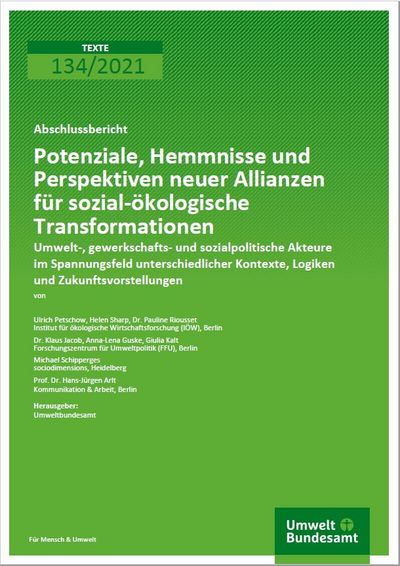Potentials, Obstacles and Perspectives of New Alliances for Socio-Ecological Transformations Environmental, trade union and social policy actors in the area of tension between different contexts, logics and visions of the future
Societal actors – both governmental and non-governmental – are facing great challenges of political action. Against the backdrop of planetary boundaries and related political commitments such as the Paris Climate Agreement, far-reaching socio-ecological transformation processes are seen as necessary. Their consistent implementation is difficult due to diverse social conflicts of interest and is potentially associated with considerable social and economic distribution effects. It is therefore necessary to identify new approaches to solving problems and to initiate debates in society as a whole on how the upcoming processes of change can be designed to be both ecologically sustainable and socially just. This is particularly important at the level of organized civil society and its central actors, the associations. Both at the governmental and non-governmental levels, it seems increasingly necessary for social and environmental policy actors to cooperate in policy formulation and also in policy implementation.
This report is devoted to the question of how overarching cooperations between environmental and social political actors come about: which structures and factors that inhibit and promote cooperation can be identified? What are the external and self-perceptions and expectations? What conclusions can be drawn for cooperation potentials and strategies? In examining these questions, particular attention will be paid to three dimensions that are considered central to the (non-)occurrence of cooperation: 1) the political and institutional contexts, 2) the specific logics of action, and 3) future perceptions and expectations. Based on this, central approaches for action are derived that outline both the necessary overarching exchange structures at the national, regional and local levels, as well as relevant topics and fields of action, and the necessity and potential for a reorientation of the stakeholders and their internal organizational structures.



